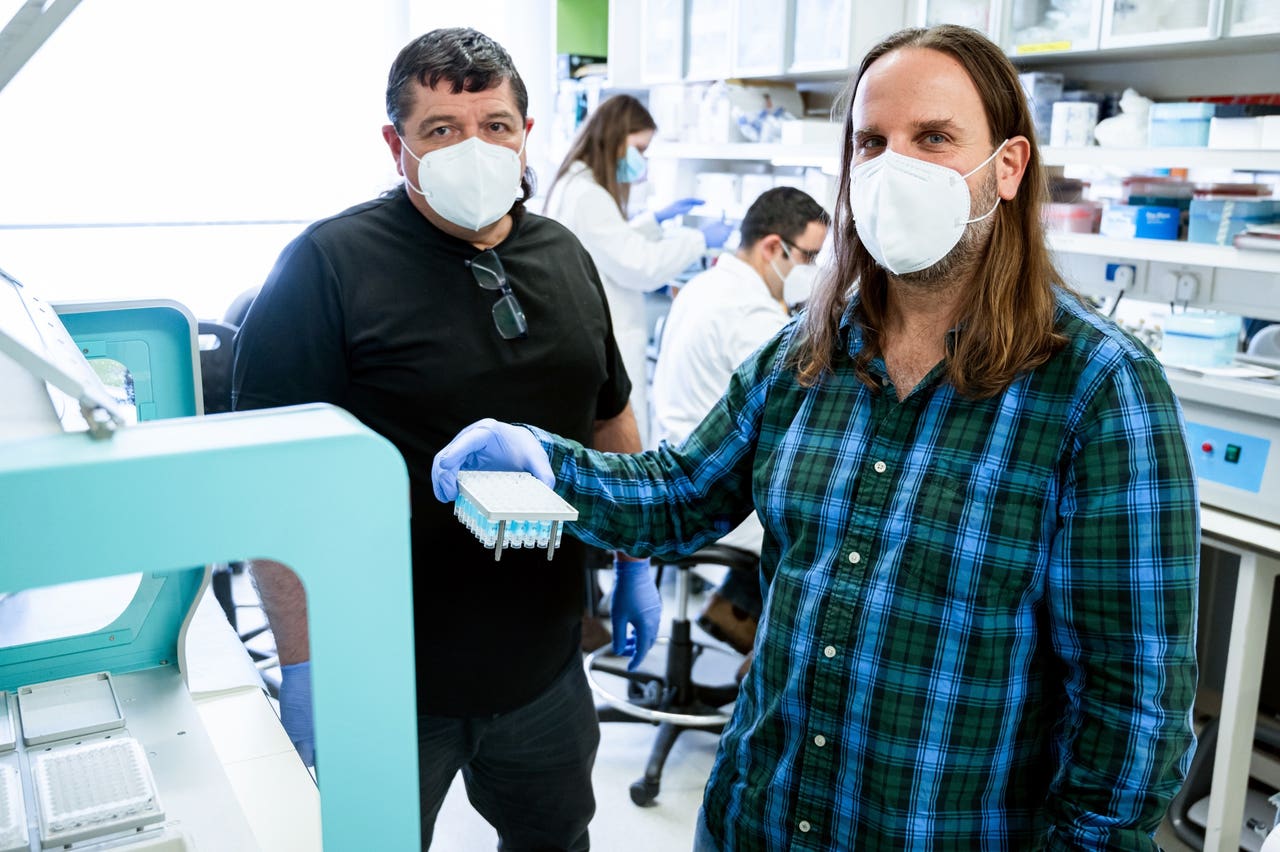A new peer-reviewed study published in Science Advances confirms the success of a new COVID-19 pooling test that identifies all positive subjects, including asymptomatic carriers, in a single round of testing.
P-BEST, an algorithmic method for pooling-based efficient SARS-CoV-2 testing, was developed by a group of researchers from Ben-Gurion University of the Negev (BGU), the National Institute for Biotechnology in the Negev (NIBN), The Open University of Israel (OUI) and Soroka University Medical Center.
"Approximately 10-30% of COVID-19 infected patients are asymptomatic and significant viral spread can occur days before symptom onset," says Prof. Angel Porgador, BGU deputy vice president of research and development and member of the NIBN. "Until there is a vaccine, there will be an urgent need to increase diagnostic testing capabilities to allow for screening of asymptomatic and pre-symptomatic populations. This new single stage diagnostic test will help prevent the spread of the disease by identifying these patients sooner and at a lower cost using significantly fewer tests."

Above left to right: Prof. Angel Porgador and Prof. Tomer Hertz
In the current study, 384 samples were divided into only 48 pools providing an eightfold increase in testing efficiency and similar reduction in testing costs for reagents. Each pool comprises a unique set of 48 samples, where each sample appears in exactly six pools using a specific combinatorial design. These 48 pools were then tested at the Soroka virology laboratory using a COVID-19 PCR-based diagnostic protocol that included an RNA extraction stage. After testing each of the 48 pools individually, the researchers successfully identified up to five positive carriers within the 384 samples, without having to test the subjects in that pool.
"P-BEST can be configured on the basis of the carrier rate," says Dr. Noam Shental, head of the OUI Computer Science Division. "The lower the carrier rate, the higher efficiency. Our pooling method has been tested using an advanced liquid-handling robotic system that can perform the task in an hour and can be performed in a typical clinical diagnostic laboratory anywhere in the world."
The researchers also tested the performance of P-BEST in a clinical study aimed at screening asymptomatic and mildly symptomatic healthcare workers. In the study, they screened 1,115 asymptomatic health care personnel at Soroka using P-BEST. Subjects were recruited across all Soroka staff and included physicians, nurses, nurse assistants, as well as clinical and administrative staff.
A total of 296 (26.5%) subjects worked in direct contact with patients with COVID-19. Within the cohort, 926 (93.1%) subjects reported themselves as totally asymptomatic, 71 (6.3%) reported a mild cough, and 70 (6.3%) reported rhinorrhea. The 1,115 participants were tested using only 144 tests. All of the pools tested were negative. Because of the decreasing carrier rates in Israel during April 2020, the third batch was blindly spiked with a sample from a patient with COVID-19, which was positively identified.
"P-BEST is ideal for conducting carrier screening when infection rates are very low, less than one percent," says Prof. Tomer Hertz from BGU's Shraga Segal Department of Microbiology, Immunology and Genetics. "This will provide significant savings in reagents and other diagnostic testing resources while significantly increasing testing capacity."
BGU and OUI have established a company, Poold Diagnostics, to pursue large scale COVID-19 testing, following the clinical study. In mid-August, the Israel Ministry of Health approved the use of P-BEST in clinical laboratories in the State of Israel.
Media Coverage:
The New York Times
Ha'aretz
